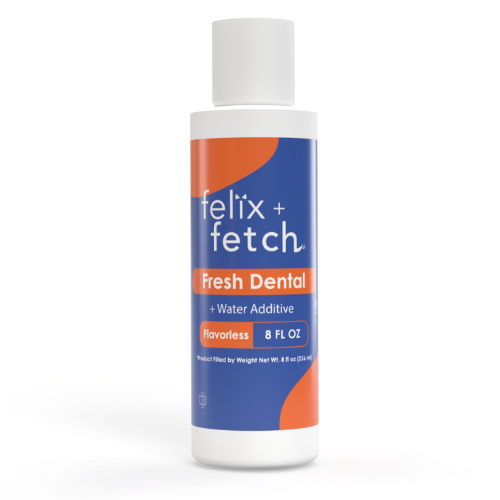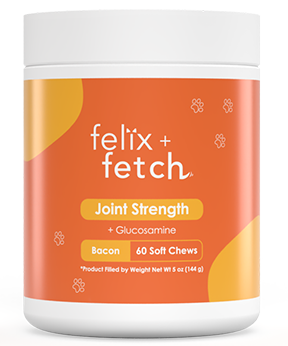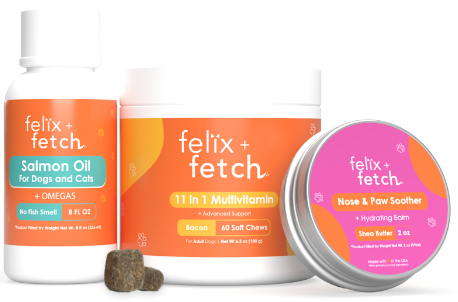
We all want the best for our pets, to give them the happiest and healthiest lives possible. It can be hard to see your pet get older and it often comes with health issues. Caring for a senior pet can be difficult, but is always extremely rewarding. Here are 5 ways to best care for your senior pet:
1. Nutrition: Older pets are usually less active and require fewer calories than younger pets. Not adapting your dog’s diet as they age can lead to weight gain, which can then cause more issues. There is food that is especially made for senior pets and has the right amount of calories and nutrients, often supporting healthy joints.

2. Mobility: Even though your senior pet will likely not be able to move as well or as fast as he or she used to, light exercise is still very important. Oftentimes senior pets will experience joint pain and stiffness. Felix + Fetch have created joint chews containing ingredients such as Dried Yucca Schidigera Extract, which is used to help symptoms such as osteoarthritis, inflammation, and poor circulation. Ascorbic Acid found in bones, carteliege, tendons, ligaments, and skin, aids in the maintenance of cartilage, bones, and teeth.

3. Watch for changes: It is important to watch for both physical and mental changes in your senior pet. Observe your pet and make sure he or she is not having trouble seeing or hearing. If you notice any changes, consult your veterinarian. It is common for senior animals to develop illnesses similar to Alzheimer’s in humans, such as canine cognitive dysfunction. If your pet forgets where he or she normally eats, stares into space, or barks at nothing, it is important to visit your vet.

4. Adjust the house: Older pets can have trouble moving around, vision problems, hearing loss, and experience disorientation. It is important to make sure it is easy for your pet to navigate the house, find their food and water, and use the bathroom. Be conscious of the stairs and keep everything on the main level, minimizing the length your pet will have to walk to get to vital things such as food or the litter box.

5. More vet visits: Older pets need to go to the vets more often than before. Aging pets should see their vet no less than twice a year for checkups. Make sure your vet is extremely knowledgeable about elderly animals. Since procedures, treatments, medications, and vet visits can be pretty costly, look into getting pet insurance to help offset some of the costs (just make sure your vet takes it).

Your pet’s golden years should be filled with tons of cuddles, love, and care. Minimizing any issues and staying on top of your pet’s health is vital in making sure they live a long, happy, and healthy life with you, their best friend.








